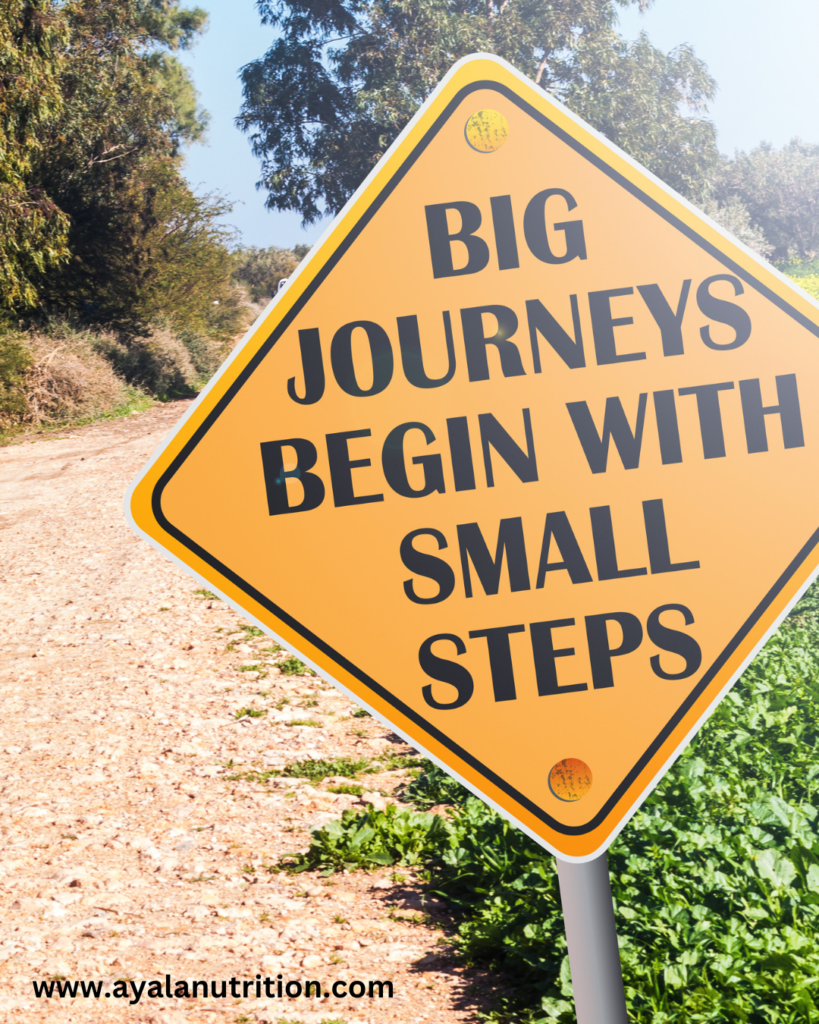What do I mean by “sustainable nutrition”
Whenever I get a call from a new client, there is typically something specific they want to work on. For example, they may want help to lower their cholesterol or figure out what to eat to promote bowel regularity or even simply want to make sure they’re eating healthily.
At this point, I may dive into some nutrition education around the problem they wish to solve but before we begin discussing any nutritional or lifestyle changes, I always stress:
“Any changes we discuss today need to be sustainable. If they aren’t something you can see yourself doing for the rest of your life, we shouldn’t really be focusing on them.”
Why do I emphasize this? Well, let’s take a look at diets. A person reads about a new diet, starts following the diet “rules” or guidelines and may see the results they were looking for. But, in time, most people aren’t able to follow those dieting guidelines for the rest of their life, they begin to feel restricted or overwhelmed and quit the diet to go back to their normal style of eating. And with this flip back in eating, they often see those results flip back as well.
Similar to this, if you were to make a change in your diet that helps to lower your cholesterol, you would be very happy. Let’s say you doubled your fiber intake and started going to the gym 5 days a week. You go to the doctor and wow! Your labs look much better. But then 6 months later, you begin to despise that bran cereal you switched to, you’re bored with those high-fiber bars and you really just get tired of going to the gym so much… Well, I’m sure you can guess what your cholesterol levels may have done when you go back to your doctor the next year.


While massive changes in our diet can lead to significant changes in our health in the short run (and may even be very exciting in the beginning), I would prefer smaller, more sustainable changes. While the results may show smaller, more gradual improvements, if these are more likely to be maintained for the long run, this type of change would be much preferred in my opinion.
How about for our example of the high cholesterol, you instead replaced a few of your breakfasts each week with a bran cereal or oatmeal and focused on non-gym ways to increase your physical activity such as walking your dog or playing basketball with your kids? While you may not see the same significant drop in your labs, you should still see improvement, and it should be improvement that you’re more likely to be able to maintain for the long run!
Is finding a sustainable nutrition plan difficult for you? I’ve created a whole nutrition course on working towards finding a healthy, balanced nutrition plan that works for you, your busy schedule and food preferences. Want more information? Check out details on the course here which includes 4 modules of 18 sessions, 10+ downloadable and numerous guided activities.
